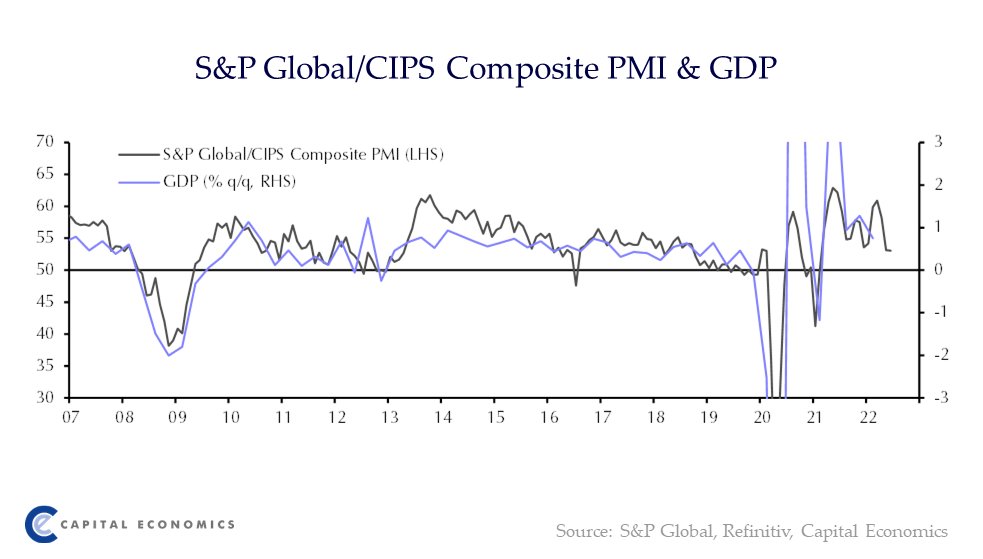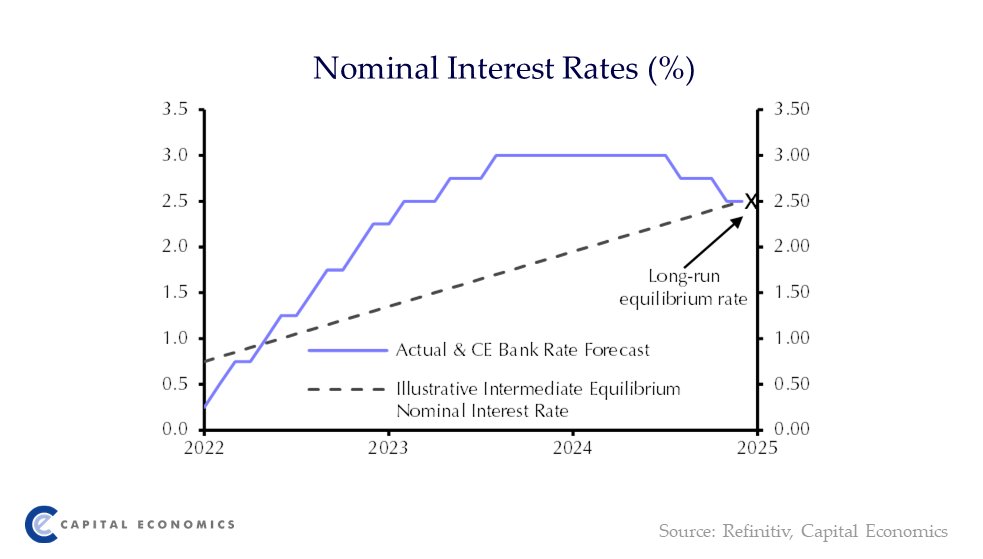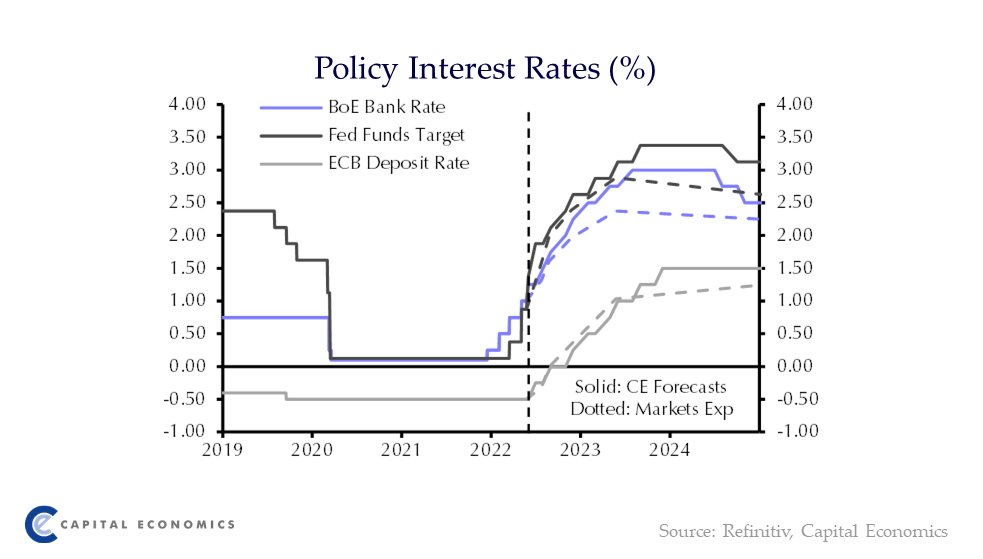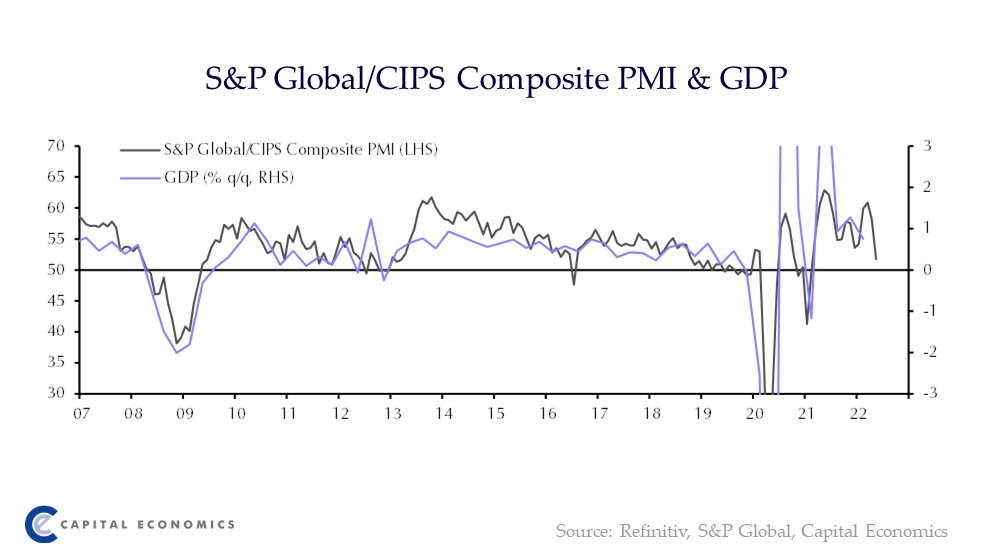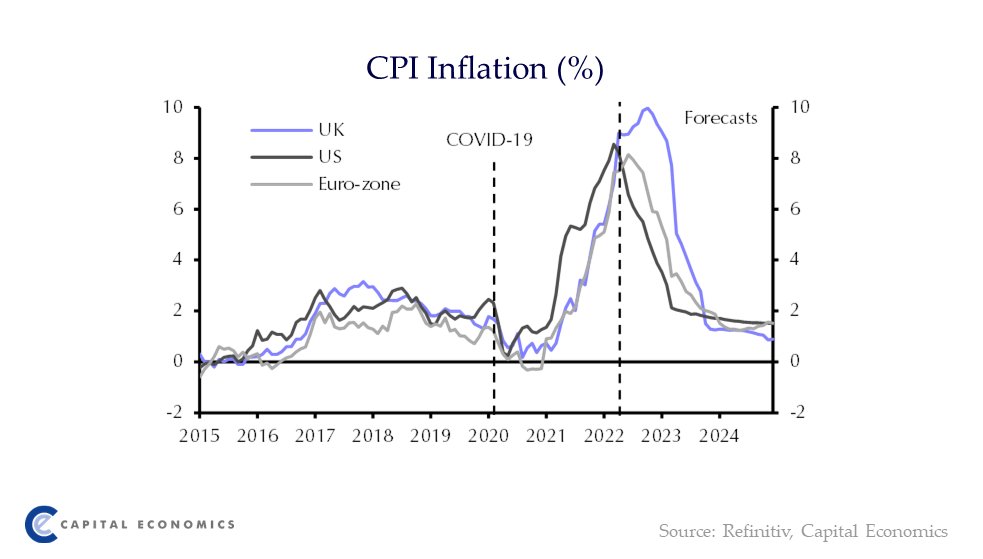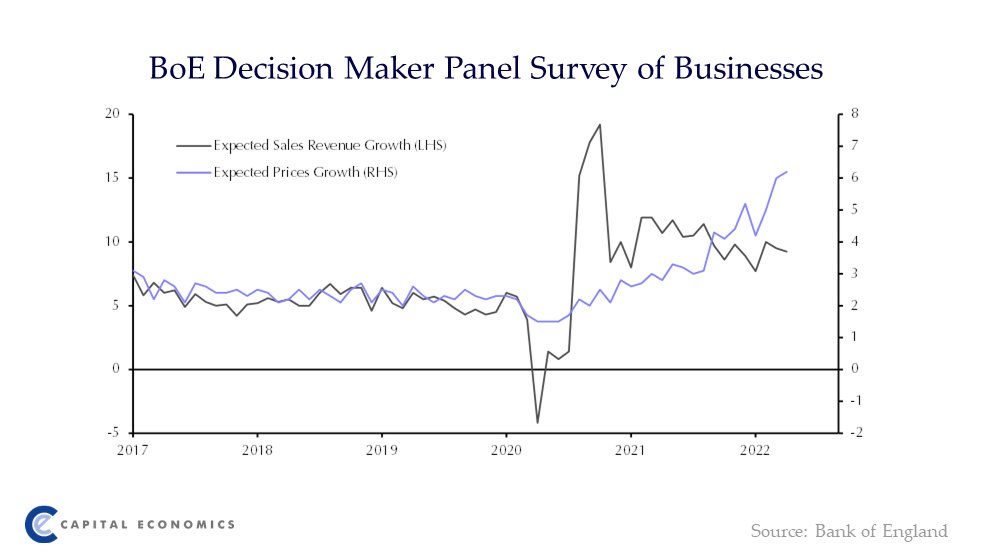
Capital Economics UK
@CapEconUK
Followers
7K
Following
10
Media
827
Statuses
1K
Insights and research on the UK economy from Capital Economics. Subscribe: http://t.co/iC7hixhPsC Follow our other accounts: http://t.co/ClNpr54tEM
London, England
Joined May 2015
UK Q2 2022 Outlook: Our forecasts envisage inflation being higher, GDP growth being lower and interest rates rising further than investors and other analysts expect. Read more here:
1
3
3



